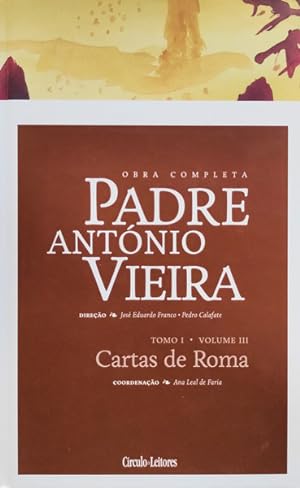Vieira Jose Carlos (232 results)
Product Type
- All Product Types
- Books (232)
- Magazines & Periodicals
- Comics
- Sheet Music
- Art, Prints & Posters
- Photographs
- Maps
-
Manuscripts &
Paper Collectibles
Condition
Binding
Collectible Attributes
- First Edition (37)
- Signed (25)
- Dust Jacket (6)
- Seller-Supplied Images (153)
- Not Printed On Demand (204)
Free Shipping
Seller Location
Seller Rating
-
The Middle East and Brazil: Perspectives on the New Global South (Public Cultures of the Middle East and North Africa)
Published by Indiana University Press, 2014
ISBN 10: 0253012279ISBN 13: 9780253012272
Seller: Orphans Treasure Box, Champaign, IL, U.S.A.
Book
Paperback. Condition: Good. Ships quickly. Mild to moderate shelf/reading wear. Orphans Treasure Box sells books to raise money for orphans and vulnerable kids.
-
Proyecto: La leyenda del Legado. Ciencias Sociales 4
Published by Editorial Luis Vives (Edelvives), 2019
ISBN 10: 8414020178ISBN 13: 9788414020173
Seller: medimops, Berlin, Germany
Book
Hoyos Masó, Alberto De; Alonso Iglesias, Jesús; Corral Escriche, Jorge Del; Doyague, Luis; Fernández Del Castillo, Carlos; Lechuga González, Maribel; Vieira De Oliveira, Marcos; Palacios Sanchís, Francisco Javier; Santos González, José; Torrent Riba, Dani (illustrator). Befriedigend/Good: Durchschnittlich erhaltenes Buch bzw. Schutzumschlag mit Gebrauchsspuren, aber vollständigen Seiten. / Describes the average WORN book or dust jacket that has all the pages present.
-
Miko
Published by Quaterni, 2019
ISBN 10: 8494897179ISBN 13: 9788494897177
Seller: AG Library, Malaga, Spain
Book
Condition: New. Idioma/Language: Español. Entre las páginas de este libro encontrarás la historia de Miko, una adaptación de una de las leyendas japonesas que explica el origen del Maneki-neko, el simpático gato de la suerte tan querido por los japoneses. *** Nota: Los envíos a España peninsular, Baleares y Canarias se realizan a través de mensajería urgente. No aceptamos pedidos con destino a Ceuta y Melilla.
-
A Serra d'Ossa e seu convento. Separata do Boletim da Junta de Província do Alto Alentejo, de Lisboa, XVII, (1938), 2.ª série, n. 1, 45-72.
Published by [Colophon] Évora, Minerva Commercial, Limitada, [1959]., 1959
Seller: Richard C. Ramer Old and Rare Books, New York, NY, U.S.A.
First Edition Signed
Large 4° (24.5 x 18.8 cm.), original printed wrappers, stapled. In very good condition. Author's signed three-line ink presentation inscription to Américo [Cortez Pinto] in upper outer blank corner of title page. 10, (2) pp. *** FIRST and only separate EDITION.Hernâni [António] Cidade (Redondo 1887-Évora 1975) is best known as an author of literary and cultural history and of literary biography. For a half century, he was a major force in the cultural life of Portugal. Cidade taught school in Coimbra, Leiria, Porto and Lisbon before moving on to an illustrious career in higher education at the Universities of Porto and Lisbon. In his youth Cidade was linked to the modernist movement, having been involved with the reviews Águia and Seara Nova, among others. He also collaborated in reviews such as those of the Faculdades de Letras of both Lisbon and Porto, newspapers (especially O Primeiro de Janeiro), and numerous collective projects such as the Grande enciclopédia portuguesa e brasileira and Dicionário de literatura. With Joaquim de Carvalho and Mário de Azevedo Gomes he edited the Diário liberal (Lisbon, 1934-1935); with Reynaldo dos Santos and Bernardo Marques he founded Colóquio - revista de artes e letras (1959-1970), and with Jacinto do Prado Coelho, in 1971, Colóquio / Letras (these last two published by the Gulbenkian Foundation).Provenance: Américo Cortez Pinto (1896-1979), physician, writer, poet and historian, native of the freguesia de Cortes in the concelho de Leiria. Américo Cortez Pinto studied at Coimbra, interned at Leira, served as a parliamentary deputy, a member of the Lisbon municipal council, and inspector of health studies, among other posts. He contributed to literary reviews such as A Tradição, Contemporânea, A Galera, Letras e Artes, and Ícaro, of which he was one of the founders, along with Ernesto Gonçalves, Cabral do Nascimento, and Luís Vieira de Castro. In addition to a considerable output of poetry, prose, literary and historical works, he is best known for the polemical Da famosa arte da imprimissão: da imprensa em Portugal às cruzadas d'Além-Mar (1948), in which he defended the priority of Leiria in Portuguese Christian typography. While Chaves currently is agreed to have been the earliest Portuguese Christian printing site, Cortez Pinto's investigations and conclusions regarding the diffusion of printing in Africa and Asia by the Portuguese remain valuable. Hernâni Cidade was one of Cortez Pinto's closest friends. Others were Afonso Lopes Vieira, Carlos Queiroz, Lino António, António José Saraiva, Sebastião Pestana, and Mário Saa. On Cortez Pinto, see Paulo J. Pedrosa S. Gomes in Biblos, IV, 179-80; also Dicionário cronológico de authores portugueses, III, 501-3; and Grande enciclopédia, VII, 818 and Actualização III, 498.*** See Álvaro Manuel Machado, Dicionário de literatura portuguesa, p. 128; Maria de Lourdes Belchior in Biblos I, 1132-4; Dicionário cronológico de autores portugueses, III, 344-5; Grande enciclopedia VI, 751; Actualização III, 226.
-
João de Barros-Geógrafo.
Published by Lisbon, Academia International da Cultua Portuguesa [back cover: printed by Bertrand (Irmãos), Lda.], 1966., 1966
Seller: Richard C. Ramer Old and Rare Books, New York, NY, U.S.A.
First Edition Signed
Large 8°, original printed wrappers. Caption title. In very good condition. Author's signed three-line ink presentation inscription to Américo [Cortez Pinto] in upper blank margin of caption title. Pp. [33]-48. *** FIRST and only separate EDITION.Hernâni [António] Cidade (Redondo 1887-Évora 1975) is best known as an author of literary and cultural history and of literary biography. For a half century, he was a major force in the cultural life of Portugal. Cidade taught school in Coimbra, Leiria, Porto and Lisbon before moving on to an illustrious career in higher education at the Universities of Porto and Lisbon. In his youth Cidade was linked to the modernist movement, having been involved with the reviews Águia and Seara Nova, among others. He also collaborated in reviews such as those of the Faculdades de Letras of both Lisbon and Porto, newspapers (especially O Primeiro de Janeiro), and numerous collective projects such as the Grande enciclopédia portuguesa e brasileira and Dicionário de literatura. With Joaquim de Carvalho and Mário de Azevedo Gomes he edited the Diário liberal (Lisbon, 1934-1935); with Reynaldo dos Santos and Bernardo Marques he founded Colóquio - revista de artes e letras (1959-1970), and with Jacinto do Prado Coelho, in 1971, Colóquio / Letras (these last two published by the Gulbenkian Foundation).Provenance: Américo Cortez Pinto (1896-1979), physician, writer, poet and historian, native of the freguesia de Cortes in the concelho de Leiria. Américo Cortez Pinto studied at Coimbra, interned at Leira, served as a parliamentary deputy, a member of the Lisbon municipal council, and inspector of health studies, among other posts. He contributed to literary reviews such as A Tradição, Contemporânea, A Galera, Letras e Artes, and Ícaro, of which he was one of the founders, along with Ernesto Gonçalves, Cabral do Nascimento, and Luís Vieira de Castro. In addition to a considerable output of poetry, prose, literary and historical works, he is best known for the polemical Da famosa arte da imprimissão: da imprensa em Portugal às cruzadas d'Além-Mar (1948), in which he defended the priority of Leiria in Portuguese Christian typography. While Chaves currently is agreed to have been the earliest Portuguese Christian printing site, Cortez Pinto's investigations and conclusions regarding the diffusion of printing in Africa and Asia by the Portuguese remain valuable. Hernâni Cidade was one of Cortez Pinto's closest friends. Others were Afonso Lopes Vieira, Carlos Queiroz, Lino António, António José Saraiva, Sebastião Pestana, and Mário Saa. On Cortez Pinto, see Paulo J. Pedrosa S. Gomes in Biblos, IV, 179-80; also Dicionário cronológico de authores portugueses, III, 501-3; and Grande enciclopédia, VII, 818 and Actualização III, 498.*** See Álvaro Manuel Machado, Dicionário de literatura portuguesa, p. 128; Maria de Lourdes Belchior in Biblos I, 1132-4; Dicionário cronológico de autores portugueses, III, 344-5; Grande enciclopedia VI, 751; Actualização III, 226.
-
O estilo épico n"Os Lusíadas". Separata da Revista portuguesa de filologia, II, i-ii, 16-26.
Published by Coimbra, Casa do Castelo, Editora, 1948., 1948
Seller: Richard C. Ramer Old and Rare Books, New York, NY, U.S.A.
First Edition Signed
Large 8°, original printed wrappers. In very good condition. Author's signed six-line ink presentation inscription to Américo [Cortez Pinto] and Zézita [presumably his wife] on half title. Small bookplate of Américo Cortez Pinto in upper outer corner of inside front cover. 15, (1) pp. *** FIRST and only separate EDITION.Hernâni [António] Cidade (Redondo 1887-Évora 1975) is best known as an author of literary and cultural history and of literary biography. For a half century, he was a major force in the cultural life of Portugal. Cidade taught school in Coimbra, Leiria, Porto and Lisbon before moving on to an illustrious career in higher education at the Universities of Porto and Lisbon. In his youth Cidade was linked to the modernist movement, having been involved with the reviews Águia and Seara Nova, among others. He also collaborated in reviews such as those of the Faculdades de Letras of both Lisbon and Porto, newspapers (especially O Primeiro de Janeiro), and numerous collective projects such as the Grande enciclopédia portuguesa e brasileira and Dicionário de literatura. With Joaquim de Carvalho and Mário de Azevedo Gomes he edited the Diário liberal (Lisbon, 1934-1935); with Reynaldo dos Santos and Bernardo Marques he founded Colóquio - revista de artes e letras (1959-1970), and with Jacinto do Prado Coelho, in 1971, Colóquio / Letras (these last two published by the Gulbenkian Foundation).Provenance: Américo Cortez Pinto (1896-1979), physician, writer, poet and historian, native of the freguesia de Cortes in the concelho de Leiria. Américo Cortez Pinto studied at Coimbra, interned at Leira, served as a parliamentary deputy, a member of the Lisbon municipal council, and inspector of health studies, among other posts. He contributed to literary reviews such as A Tradição, Contemporânea, A Galera, Letras e Artes, and Ícaro, of which he was one of the founders, along with Ernesto Gonçalves, Cabral do Nascimento, and Luís Vieira de Castro. In addition to a considerable output of poetry, prose, literary and historical works, he is best known for the polemical Da famosa arte da imprimissão: da imprensa em Portugal às cruzadas d'Além-Mar (1948), in which he defended the priority of Leiria in Portuguese Christian typography. While Chaves currently is agreed to have been the earliest Portuguese Christian printing site, Cortez Pinto's investigations and conclusions regarding the diffusion of printing in Africa and Asia by the Portuguese remain valuable. Hernâni Cidade was one of Cortez Pinto's closest friends. Others were Afonso Lopes Vieira, Carlos Queiroz, Lino António, António José Saraiva, Sebastião Pestana, and Mário Saa. On Cortez Pinto, see Paulo J. Pedrosa S. Gomes in Biblos, IV, 179-80; also Dicionário cronológico de authores portugueses, III, 501-3; and Grande enciclopédia, VII, 818 and Actualização III, 498.*** "Bibliografia do Prof. Hernâni Cidade," in Misscelânea de estudos em honra do Prof. Hernâni Cidade, 135. See Álvaro Manuel Machado, Dicionário de literatura portuguesa, p. 128; Maria de Lourdes Belchior in Biblos I, 1132-4; Dicionário cronológico de autores portugueses, III, 344-5; Grande enciclopedia VI, 751; Actualização III, 226.
-
Pensamento e acção na expansão portuguesa. Separata do Boletim da Sociedde de Geografia de Lisboa, (April-Junho 1964)
Published by Lisbon, Sociedade de Geografia [Composto e Impresso na Emp. Tip Cas Portugues Sucrs., Lda.], 1964., 1964
Seller: Richard C. Ramer Old and Rare Books, New York, NY, U.S.A.
First Edition Signed
Large 8°, original printed wrappers. Front cover printed in red and black. Emblem of the Sociedade de Geografia on front cover. Caption title. Some browned. In good condition. Author's signed three-line ink presentation inscription to Américo [Cortez Pinto] in upper blank margin of caption title. Pp. 173-86. *** FIRST and only separate EDITION.Hernâni [António] Cidade (Redondo 1887-Évora 1975) is best known as an author of literary and cultural history and of literary biography. For a half century, he was a major force in the cultural life of Portugal. Cidade taught school in Coimbra, Leiria, Porto and Lisbon before moving on to an illustrious career in higher education at the Universities of Porto and Lisbon. In his youth Cidade was linked to the modernist movement, having been involved with the reviews Águia and Seara Nova, among others. He also collaborated in reviews such as those of the Faculdades de Letras of both Lisbon and Porto, newspapers (especially O Primeiro de Janeiro), and numerous collective projects such as the Grande enciclopédia portuguesa e brasileira and Dicionário de literatura. With Joaquim de Carvalho and Mário de Azevedo Gomes he edited the Diário liberal (Lisbon, 1934-1935); with Reynaldo dos Santos and Bernardo Marques he founded Colóquio - revista de artes e letras (1959-1970), and with Jacinto do Prado Coelho, in 1971, Colóquio / Letras (these last two published by the Gulbenkian Foundation).Provenance: Américo Cortez Pinto (1896-1979), physician, writer, poet and historian, native of the freguesia de Cortes in the concelho de Leiria. Américo Cortez Pinto studied at Coimbra, interned at Leira, served as a parliamentary deputy, a member of the Lisbon municipal council, and inspector of health studies, among other posts. He contributed to literary reviews such as A Tradição, Contemporânea, A Galera, Letras e Artes, and Ícaro, of which he was one of the founders, along with Ernesto Gonçalves, Cabral do Nascimento, and Luís Vieira de Castro. In addition to a considerable output of poetry, prose, literary and historical works, he is best known for the polemical Da famosa arte da imprimissão: da imprensa em Portugal às cruzadas d'Além-Mar (1948), in which he defended the priority of Leiria in Portuguese Christian typography. While Chaves currently is agreed to have been the earliest Portuguese Christian printing site, Cortez Pinto's investigations and conclusions regarding the diffusion of printing in Africa and Asia by the Portuguese remain valuable. Hernâni Cidade was one of Cortez Pinto's closest friends. Others were Afonso Lopes Vieira, Carlos Queiroz, Lino António, António José Saraiva, Sebastião Pestana, and Mário Saa. On Cortez Pinto, see Paulo J. Pedrosa S. Gomes in Biblos, IV, 179-80; also Dicionário cronológico de authores portugueses, III, 501-3; and Grande enciclopédia, VII, 818 and Actualização III, 498.*** See Álvaro Manuel Machado, Dicionário de literatura portuguesa, p. 128; Maria de Lourdes Belchior in Biblos I, 1132-4; Dicionário cronológico de autores portugueses, III, 344-5; Grande enciclopedia VI, 751; Actualização III, 226.
-
A literatura portuguesa e a expansão ultramarina.As ideias-Os factos-As formas de arte. Volume II: Séculos XVII e XVIII. Colecção Stvdivm, 84. Temas Filosóficos, jurídicos e sociais.
Published by Coimbra, Arménio Amado, Editor, Sucessor, 1964., 1964
Seller: Richard C. Ramer Old and Rare Books, New York, NY, U.S.A.
First Edition Signed
8°, original printed wrappers. Some light toning. In good to very good condition. Author's signed seven-line ink presentation inscription to "Américo" [Cortez Pinto] on half title. 428 pp., (2 ll.) *** FIRST EDITION.Hernâni [António] Cidade (Redondo 1887-Évora 1975) is best known as an author of literary and cultural history and of literary biography. For a half century, he was a major force in the cultural life of Portugal. Cidade taught school in Coimbra, Leiria, Porto and Lisbon before moving on to an illustrious career in higher education at the Universities of Porto and Lisbon. In his youth Cidade was linked to the modernist movement, having been involved with the reviews Águia and Seara Nova, among others. He also collaborated in reviews such as those of the Faculdades de Letras of both Lisbon and Porto, newspapers (especially O Primeiro de Janeiro), and numerous collective projects such as the Grande enciclopédia portuguesa e brasileira and Dicionário de literatura. With Joaquim de Carvalho and Mário de Azevedo Gomes he edited the Diário liberal (Lisbon, 1934-1935); with Reynaldo dos Santos and Bernardo Marques he founded Colóquio - revista de artes e letras (1959-1970), and with Jacinto do Prado Coelho, in 1971, Colóquio / Letras (these last two published by the Gulbenkian Foundation).Provenance: Américo Cortez Pinto (1896-1979), physician, writer, poet and historian, native of the freguesia de Cortes in the concelho de Leiria. Américo Cortez Pinto studied at Coimbra, interned at Leira, served as a parliamentary deputy, a member of the Lisbon municipal council, and inspector of health studies, among other posts. He contributed to literary reviews such as A Tradição, Contemporânea, A Galera, Letras e Artes, and Ícaro, of which he was one of the founders, along with Ernesto Gonçalves, Cabral do Nascimento, and Luís Vieira de Castro. In addition to a considerable output of poetry, prose, literary and historical works, he is best known for the polemical Da famosa arte da imprimissão: da imprensa em Portugal às cruzadas d'Além-Mar (1948), in which he defended the priority of Leiria in Portuguese Christian typography. While Chaves currently is agreed to have been the earliest Portuguese Christian printing site, Cortez Pinto's investigations and conclusions regarding the diffusion of printing in Africa and Asia by the Portuguese remain valuable. Hernâni Cidade was one of Cortez Pinto's closest friends. Others were Afonso Lopes Vieira, Carlos Queiroz, Lino António, António José Saraiva, Sebastião Pestana, and Mário Saa. On Cortez Pinto, see Paulo J. Pedrosa S. Gomes in Biblos, IV, 179-80; also Dicionário cronológico de authores portugueses, III, 501-3; and Grande enciclopédia, VII, 818 and Actualização III, 498.*** See Álvaro Manuel Machado, Dicionário de literatura portuguesa, p. 128; Maria de Lourdes Belchior in Biblos I, 1132-4; Dicionário cronológico de autores portugueses, III, 344-5; Grande enciclopedia VI, 751; Actualização III, 226.
-
Lições de cultura e literatura portuguesas. 1.º volume-(Séculos XV, XVI e XVII). 3.ª Edição, corrigida, actualizada e ampliada.
Published by Coimbra, Coimbra Editora, Limitada, 1951., 1951
Seller: Richard C. Ramer Old and Rare Books, New York, NY, U.S.A.
Signed
Large 8°, original illustrated wrappers (some wear to spine and minor fraying). Uncut. In good condition overall. Internally very good. Author's signed four-line green ink presentation inscription to Américo [Cortez Pinto]. Bookplate of Américo Cortez Pinto. (6 ll.), 453 pp., (1 l. "Correcções e aditamento"). *** Hernâni [António] Cidade (Redondo 1887-Évora 1975) is best known as an author of literary and cultural history and of literary biography. For a half century, he was a major force in the cultural life of Portugal. Cidade taught school in Coimbra, Leiria, Porto and Lisbon before moving on to an illustrious career in higher education at the Universities of Porto and Lisbon. In his youth Cidade was linked to the modernist movement, having been involved with the reviews Águia and Seara Nova, among others. He also collaborated in reviews such as those of the Faculdades de Letras of both Lisbon and Porto, newspapers (especially O Primeiro de Janeiro), and numerous collective projects such as the Grande enciclopédia portuguesa e brasileira and Dicionário de literatura. With Joaquim de Carvalho and Mário de Azevedo Gomes he edited the Diário liberal (Lisbon, 1934-1935); with Reynaldo dos Santos and Bernardo Marques he founded Colóquio - revista de artes e letras (1959-1970), and with Jacinto do Prado Coelho, in 1971, Colóquio / Letras (these last two published by the Gulbenkian Foundation).Provenance: Américo Cortez Pinto (1896-1979), physician, writer, poet and historian, native of the freguesia de Cortes in the concelho de Leiria. Américo Cortez Pinto studied at Coimbra, interned at Leira, served as a parliamentary deputy, a member of the Lisbon municipal council, and inspector of health studies, among other posts. He contributed to literary reviews such as A Tradição, Contemporânea, A Galera, Letras e Artes, and Ícaro, of which he was one of the founders, along with Ernesto Gonçalves, Cabral do Nascimento, and Luís Vieira de Castro. In addition to a considerable output of poetry, prose, literary and historical works, he is best known for the polemical Da famosa arte da imprimissão: da imprensa em Portugal às cruzadas d'Além-Mar (1948), in which he defended the priority of Leiria in Portuguese Christian typography. While Chaves currently is agreed to have been the earliest Portuguese Christian printing site, Cortez Pinto's investigations and conclusions regarding the diffusion of printing in Africa and Asia by the Portuguese remain valuable. Hernâni Cidade was one of Cortez Pinto's closest friends. Others were Afonso Lopes Vieira, Carlos Queiroz, Lino António, António José Saraiva, Sebastião Pestana, and Mário Saa. On Cortez Pinto, see Paulo J. Pedrosa S. Gomes in Biblos, IV, 179-80; also Dicionário cronológico de authores portugueses, III, 501-3; and Grande enciclopédia, VII, 818 and Actualização III, 498.*** "Bibliografia do Prof. Hernâni Cidade," in Misscelânea de estudos em honra do Prof. Hernâni Cidade, 150. See Álvaro Manuel Machado, Dicionário de literatura portuguesa, p. 128; Maria de Lourdes Belchior in Biblos I, 1132-4; Dicionário cronológico de autores portugueses, III, 344-5; Grande enciclopedia VI, 751; Actualização III, 226.
-
Luís de Camões. Volume I: O lírico.
Published by Lisbon, Imprensa Nacional, 1936., 1936
Seller: Richard C. Ramer Old and Rare Books, New York, NY, U.S.A.
First Edition Signed
Large 8°, original illustrated wrappers (spine rather defective; rear cover detached). In less than good condition overall. Internally good to very good. Author's interesting signed ten-line ink presentation inscription to Américo [Cortez Pinto] on half title and signed three-line ink presentation inscription from Cortez Pinto to "Mamãe". Bookplate of Américo Cortez Pinto. ix, 342 pp., (1 l. errata). *** FIRST separate EDITION of a work published almost simultaneously in the Revista da Faculdade de Letras of the Universidade de Lisboa.Hernâni [António] Cidade (Redondo 1887-Évora 1975) is best known as an author of literary and cultural history and of literary biography. For a half century, he was a major force in the cultural life of Portugal. Cidade taught school in Coimbra, Leiria, Porto and Lisbon before moving on to an illustrious career in higher education at the Universities of Porto and Lisbon. In his youth Cidade was linked to the modernist movement, having been involved with the reviews Águia and Seara Nova, among others. He also collaborated in reviews such as those of the Faculdades de Letras of both Lisbon and Porto, newspapers (especially O Primeiro de Janeiro), and numerous collective projects such as the Grande enciclopédia portuguesa e brasileira and Dicionário de literatura. With Joaquim de Carvalho and Mário de Azevedo Gomes he edited the Diário liberal (Lisbon, 1934-1935); with Reynaldo dos Santos and Bernardo Marques he founded Colóquio - revista de artes e letras (1959-1970), and with Jacinto do Prado Coelho, in 1971, Colóquio / Letras (these last two published by the Gulbenkian Foundation).Provenance: Américo Cortez Pinto (1896-1979), physician, writer, poet and historian, native of the freguesia de Cortes in the concelho de Leiria. Américo Cortez Pinto studied at Coimbra, interned at Leira, served as a parliamentary deputy, a member of the Lisbon municipal council, and inspector of health studies, among other posts. He contributed to literary reviews such as A Tradição, Contemporânea, A Galera, Letras e Artes, and Ícaro, of which he was one of the founders, along with Ernesto Gonçalves, Cabral do Nascimento, and Luís Vieira de Castro. In addition to a considerable output of poetry, prose, literary and historical works, he is best known for the polemical Da famosa arte da imprimissão: da imprensa em Portugal às cruzadas d'Além-Mar (1948), in which he defended the priority of Leiria in Portuguese Christian typography. While Chaves currently is agreed to have been the earliest Portuguese Christian printing site, Cortez Pinto's investigations and conclusions regarding the diffusion of printing in Africa and Asia by the Portuguese remain valuable. Hernâni Cidade was one of Cortez Pinto's closest friends. Others were Afonso Lopes Vieira, Carlos Queiroz, Lino António, António José Saraiva, Sebastião Pestana, and Mário Saa. On Cortez Pinto, see Paulo J. Pedrosa S. Gomes in Biblos, IV, 179-80; also Dicionário cronológico de authores portugueses, III, 501-3; and Grande enciclopédia, VII, 818 and Actualização III, 498.*** "Bibliografia do Prof. Hernâni Cidade," in Misscelânea de estudos em honra do Prof. Hernâni Cidade, 51. See Álvaro Manuel Machado, Dicionário de literatura portuguesa, p. 128; Maria de Lourdes Belchior in Biblos I, 1132-4; Dicionário cronológico de autores portugueses, III, 344-5; Grande enciclopedia VI, 751; Actualização III, 226.
-
LOS SUEÑOS EN LA CULTURA IBEROAMERICANA (SIGLOS XVI-XVIII)
Published by CONSEJO SUPERIOR DE INVESTIGACIONES CIENTIFICAS (CSIC), España, 2011
ISBN 10: 8400093127ISBN 13: 9788400093129
Seller: KALAMO LIBROS, S.L., La Puebla de Montalbán, TO, Spain
Book
Encuadernación de tapa blanda. Condition: Nuevo. 432 pp. El fenómeno del sueño fue un elemento central de las sociedades medievales y del Antiguo Regimen, que creían que las experiencias oníricas poseían relevancia dentro de la colectividad. Si bien la interpretación individual de los signos e imágenes experimentados mientras dormimos existía, el mundo de los sueños era considerado como una realidad en tanto que en ellos se podían tener premoniciones, recibir enseñanzas morales y espirituales, mensajes de la divinidad o del demonio o advertencias sobre la conducta a seguir en un caso de terminado. Los acercamientos literarios al sueño cuentan con una larga tradición en el ámbito de los estudios europeos; en cuanto a los estudios culturales, que son más recientes, han dado ya importantes frutos. Sin embargo, en el caso de la América ibérica de los siglos XVI-XVIII, el campo de la cultura del sueño es un terreno casi inexplorado, salvo para Brasil, donde encontramos algunos trabajos pioneros. El presente volumen propone una reflexión sobre la experiencia onírica en la cultura colonial iberoamericana y pretende abrir pistas para futuros trabajos en este campo. Los autores de los doce trabajos aquí reunidos abordan tanto la dimensión político-social de los sueños como la religiosa, sin descuidar los aspectos estéticos y filosóficos, partiendo todos ellos de un enfoque compartido: los sueños como expresión del pensamiento y de la mentalidad de una época fundacional de la historia de América Latina. Esperamos que el presente volumen contribuya a una mejor comprensión de la formación de las sociedades surgidas como consecuencia de las conquistas y de su universo letrado. Sumario: Sueño, mentalidades y representaciones en la Iberoamérica virreinal, SONIA V. ROSE - PEER SCHMIDT .- La tradición del somnium: de la Antigüedad al Renacimiento, GREGOR WEBERGREGOR .- Sueños en el Renacimiento y en el Barroco hispánicos. De Juan Luis Vives a Sor Juana Inés de la Cruz, KARL KOHUT.- , Imaginario español de realidad americana: los sueños novohispanos de Diego Martínez de Arce, MARÍA VICTORIA JORDÁN Sueños y visiones en Nueva España: una aproximación a su narración y recepción durante el Barroco, ANTONIO RUBIAL GARCÍA .- Visiones y visionarias ante la Inquisición de Lima, RENÉ MILLAR ARVACHO .- Los sueños en crónicas novohispanas, ALICIA MAYER .- Mensajes oníricos ortodoxos: doctrina católica y neoestoicismo en los sueños de Palafox y Mendoza, PEER SCHMIDT .- Sueños, profecías, visiones y política en las crónicas limeñas del siglo XVII , CARLOS GÁLVEZ-PEÑA.- Sueño y misión en el Padre Vieira, LUÍS FILIPE SILVÉRIO LIMA.- Un sueño para un rey: la carta de Antonio de Maldonado a Felipe IV, SONIA V. ROSE .- El sueño en la trama épica: la visión corográfica de San Quintín en La Araucana de Alonso de Ercilla, PAUL FIRBAS.- Sueño y tragedia en La Rodoguna de Pedro de Peralta y Barnuevo, JOSÉ A. RODRÍGUEZ GARRIDO.
-
Soft Cover. Condition: Good. 2.º ano. Junho de 1967. Director: Carlos A. Vieira da Rocha. Associação dos Antigos Alunos do Colégio Militar. Lisboa. 1967. De 23,5x16,5 cm. Com 102, [xiv] págs. Brochado. Ilustrado com fotografias a preto e branco. Reíne vários artigos, entre eles: O 164º aniversário do Colégio Militar por Manuel Nascimento de Almeida; Do convento ao Colégio da Luz - Factos que o tempo levou por Armando José Claro da Fonseca; Meninos da Luz na Guerra Civil de Espanha por Vasco Salema, entre outros. Language: Português / Portuguese Location/localizacao: I-230-B-31.
-
Cartoons do ano 2014
Published by DOCUMENTA, 2015
ISBN 10: 9899930792ISBN 13: 9789899930797
Seller: Imosver, PONTECALDELAS, Spain
Book
Condition: Nuevo. Os suspeitos do costume (mais ou menos) regressam ao local do «crime»: o Cartoon Xira. Como sempre, o chefe do bando, que responde pelo nome de António e se envolveu nestas actividades desde que há democracia em Portugal, seleccionou os restantes a dedo: Cid (praticante já no tempo da outra senhora, chamada Censura), Maia, Carrilho, Monteiro, Cristina, Gonçalves, Bandeira (recrutado apenas no ano passado) e Brito (outro recém-chegado, que, como emigrante, há muito atemoriza pela calada muitas almas no estrangeiro). Deve-se ficar de prevenção sempre que aparecer uma destas assinaturas escritas em papel de imprensa (e agora até também na Internet). Apesar da sua reincidência, nenhum deles foi ainda neutralizado pela brigada dos bons costumes. Continuam a desinquietar os detentores do poder, morem eles à esquerda ou à direita, sejam nacionais ou estrangeiros, estejam no governo ou na oposição. [à] A sua arma de eleição é o cartoon, que utilizam de forma demolidora, causando ataques de riso capazes de deixar os cidadãos indefesos. [à] A sua colheita de 2013, austero ano de uma demissão «irrevogável» por apenas uma fracção de tempo, de um brutal aumento de impostos, de cortes a torto e a direito, da emergência de uma Miss Swaps, de ajustes de contas em tribunal (Constitucional), de um líder oposicionista a fazer de morto, de um massacre de professores, de uma Alemanha «über alles» e de um Papa de tratar por tu, foi-lhes particularmente proveitosa. Resolveram concentrar o melhor desse seu espólio em Vila Franca de Xira, mais uma vez após uma recolha levada a cabo por António [à]. [Joaquim Vieira in «Aviso à navegação», Cartoons do ano 2013]. Os cartoonistas da presente edição de Cartoons são António Antunes [Vila Franca de Xira, 1953], José Bandeira [Lisboa, 1962], Carlos Brito [Lisboa, 1943], André Carrilho [Amadora, 1974], Augusto Cid [Horta, Açores, 1941], Cristina Sampaio [Lisboa], António Jorge Gonçalves [Lisboa, 1964], António Maia [Rio Maior, 1951] e Henrique Monte.
-
Cartoons do ano 2013
Published by DOCUMENTA, 2014
ISBN 10: 9898566485ISBN 13: 9789898566485
Seller: Imosver, PONTECALDELAS, Spain
Book
Condition: Nuevo. Os suspeitos do costume (mais ou menos) regressam ao local do «crime»: o Cartoon Xira. Como sempre, o chefe do bando, que responde pelo nome de António e se envolveu nestas actividades desde que há democracia em Portugal, seleccionou os restantes a dedo: Cid (praticante já no tempo da outra senhora, chamada Censura), Maia, Carrilho, Monteiro, Cristina, Gonçalves, Bandeira (recrutado apenas no ano passado) e Brito (outro recém-chegado, que, como emigrante, há muito atemoriza pela calada muitas almas no estrangeiro). Deve-se ficar de prevenção sempre que aparecer uma destas assinaturas escritas em papel de imprensa (e agora até também na Internet). Apesar da sua reincidência, nenhum deles foi ainda neutralizado pela brigada dos bons costumes. Continuam a desinquietar os detentores do poder, morem eles à esquerda ou à direita, sejam nacionais ou estrangeiros, estejam no governo ou na oposição. [à] A sua arma de eleição é o cartoon, que utilizam de forma demolidora, causando ataques de riso capazes de deixar os cidadãos indefesos. [à] A sua colheita de 2013, austero ano de uma demissão «irrevogável» por apenas uma fracção de tempo, de um brutal aumento de impostos, de cortes a torto e a direito, da emergência de uma Miss Swaps, de ajustes de contas em tribunal (Constitucional), de um líder oposicionista a fazer de morto, de um massacre de professores, de uma Alemanha «über alles» e de um Papa de tratar por tu, foi-lhes particularmente proveitosa. Resolveram concentrar o melhor desse seu espólio em Vila Franca de Xira, mais uma vez após uma recolha levada a cabo por António [à]. [Joaquim Vieira in «Aviso à navegação», Cartoons do ano 2013]. Os cartoonistas da presente edição de Cartoons são António Antunes [Vila Franca de Xira, 1953], José Bandeira [Lisboa, 1962], Carlos Brito [Lisboa, 1943], André Carrilho [Amadora, 1974], Augusto Cid [Horta, Açores, 1941], Cristina Sampaio [Lisboa], António Jorge Gonçalves [Lisboa, 1964], António Maia [Rio Maior, 1951] e Henrique Monte.
-
Alterações contratuais durante a pandemia Covid-19 (Portuguese Edition)
Published by LAECC, 2021
ISBN 10: 6588563280ISBN 13: 9786588563281
Seller: Lucky's Textbooks, Dallas, TX, U.S.A.
Book
Condition: New.
More buying choices from other sellers on AbeBooks
New offers from US$ 34.00
-
14 x 22 cm. Flanzine nº 17 - Cinzas. Encuadernación rústica, 80 págs. Imágenes en b/n. NUEVO. Colaboran: João Pedro Azul | PAM | Regina Guimarães | Daniela Gomes | Luís Manuel Gaspar| Joanna Latka | Sandro William Junqueira | Isabel Costa | Maria Eloy-García | Filipa Ávila Antunes | Antoine Pimentel | Gabriela Gomes | Pedro Tiagp | Carlos Guerreiro | Carla Diacov | Sebastião Peixoto | Bruno Vieira Amaral | Alina Zarekaite | João Paulo Esteves da Silva | Nasos Karabelas | Ana Cássia Rebelo | André Tecedeiro | Valério Romão | Jorge Palinhos | Raquel Serejo Martins | Vítor Rua | Ana Paula Inácio | Maria Leonor Figueiredo | Ana Teresa Pereira | ?M?i?g?u?e?l? Bonneville | Leonor Zamith | Paulo José Miranda | Mário Cunha | Adolfo Luxúria Canibal | Miguel Cardoso | Luísa Monteiro | Catarina Santiago Costa | Jussara Salazar | Rui Cartaxo Rodrigues | Paulo Mendes | Tatiana Faia | André Catarino | Alexandre Esgaio | Paola D Agostino | Daniel Curval | Pedro Sobrado | Rui Pinheiro | Ricardo Guerreiro Campos | Henrique Manuel Bento Fialho | Rachel Caiano | Miguel-Manso | Manuel San Payo | Paula Leite. Revistas. Ediciones independientes ENVIO POR CONTRAREEMBOLSO LLEVA UN CARGO ADICIONAL DE 3 EUROS.
-
UTOPÍA Y PODER EN EUROPA Y AMÉRICA.
Published by TECNOS, 2016
ISBN 10: 8430967079ISBN 13: 9788430967070
Seller: KALAMO LIBROS, S.L., La Puebla de Montalbán, TO, Spain
Book
Encuadernación de tapa blanda. Condition: Nuevo.
More buying choices from other sellers on AbeBooks
New offers from US$ 30.23
Used offers from US$ 21.87
Also find Softcover
-
O mar na formação e robustecimento na defesa e ilustração de Portugal. Reprinted from the Boletim da Academia International da Cultua Portuguesa, VII (1972), 25-38.
Published by Lisbon, Centro de Estudos de Marinha [colophon: Composto e impresso no Instituto Hidrográfico, Lisboa, Janeiro 1973], 1972., 1973
Seller: Richard C. Ramer Old and Rare Books, New York, NY, U.S.A.
Signed
Large 8°, original printed wrappers, stapled. In very good condition. Author's signed four-line ink presentation inscription to Américo [Cortez Pinto] in upper blank margin of title page. Marginal highlighting in pencil. 11 pp., (1 l. colophon, 1 blank l.). *** Paper read at the Centro de Estudos de Marinha on 16 June, 1971.Hernâni [António] Cidade (Redondo 1887-Évora 1975) is best known as an author of literary and cultural history and of literary biography. For a half century, he was a major force in the cultural life of Portugal. Cidade taught school in Coimbra, Leiria, Porto and Lisbon before moving on to an illustrious career in higher education at the Universities of Porto and Lisbon. In his youth Cidade was linked to the modernist movement, having been involved with the reviews Águia and Seara Nova, among others. He also collaborated in reviews such as those of the Faculdades de Letras of both Lisbon and Porto, newspapers (especially O Primeiro de Janeiro), and numerous collective projects such as the Grande enciclopédia portuguesa e brasileira and Dicionário de literatura. With Joaquim de Carvalho and Mário de Azevedo Gomes he edited the Diário liberal (Lisbon, 1934-1935); with Reynaldo dos Santos and Bernardo Marques he founded Colóquio - revista de artes e letras (1959-1970), and with Jacinto do Prado Coelho, in 1971, Colóquio / Letras (these last two published by the Gulbenkian Foundation).Provenance: Américo Cortez Pinto (1896-1979), physician, writer, poet and historian, native of the freguesia de Cortes in the concelho de Leiria. Américo Cortez Pinto studied at Coimbra, interned at Leira, served as a parliamentary deputy, a member of the Lisbon municipal council, and inspector of health studies, among other posts. He contributed to literary reviews such as A Tradição, Contemporânea, A Galera, Letras e Artes, and Ícaro, of which he was one of the founders, along with Ernesto Gonçalves, Cabral do Nascimento, and Luís Vieira de Castro. In addition to a considerable output of poetry, prose, literary and historical works, he is best known for the polemical Da famosa arte da imprimissão: da imprensa em Portugal às cruzadas d'Além-Mar (1948), in which he defended the priority of Leiria in Portuguese Christian typography. While Chaves currently is agreed to have been the earliest Portuguese Christian printing site, Cortez Pinto's investigations and conclusions regarding the diffusion of printing in Africa and Asia by the Portuguese remain valuable. Hernâni Cidade was one of Cortez Pinto's closest friends. Others were Afonso Lopes Vieira, Carlos Queiroz, Lino António, António José Saraiva, Sebastião Pestana, and Mário Saa. On Cortez Pinto, see Paulo J. Pedrosa S. Gomes in Biblos, IV, 179-80; also Dicionário cronológico de authores portugueses, III, 501-3; and Grande enciclopédia, VII, 818 and Actualização III, 498.*** See Álvaro Manuel Machado, Dicionário de literatura portuguesa, p. 128; Maria de Lourdes Belchior in Biblos I, 1132-4; Dicionário cronológico de autores portugueses, III, 344-5; Grande enciclopedia VI, 751; Actualização III, 226. Porbase locates a single copy at the Biblioteca Nacional de Portugal, and two copies of the Separata. Not located in Jisc. KVK (51 databases searched) locates only the copy cited by Porbase, and the Separatas cited by Porbase.
-
A constribuição portuguesa para a mundividência de quinhentos: tese sobre tema proposto pela Comissão organizadora do "Colloquium"Luso-Brasileiro de Washington e a ele apresentada. Separata da Revista da Faculdade de Letras, de Lisboa, XVII, (1938), 2.ª série, n. 1, 45-72.
Published by Lisbon, Universidade de Lisboa [printed Vila Nova de Famalicão: Tipografia "Minerva" de Gaspar Pinto de Sousa, Sucs., Lda.], 1951., 1951
Seller: Richard C. Ramer Old and Rare Books, New York, NY, U.S.A.
First Edition Signed
Large 8°, original printed wrappers, stitched. Logo of Universidade de Lisboa on front cover and title page. In very good condition. Author's signed four-line green ink presentation inscription to Américo [Cortez Pinto] on half title. 32 pp. *** FIRST and only separate EDITION.Hernâni [António] Cidade (Redondo 1887-Évora 1975) is best known as an author of literary and cultural history and of literary biography. For a half century, he was a major force in the cultural life of Portugal. Cidade taught school in Coimbra, Leiria, Porto and Lisbon before moving on to an illustrious career in higher education at the Universities of Porto and Lisbon. In his youth Cidade was linked to the modernist movement, having been involved with the reviews Águia and Seara Nova, among others. He also collaborated in reviews such as those of the Faculdades de Letras of both Lisbon and Porto, newspapers (especially O Primeiro de Janeiro), and numerous collective projects such as the Grande enciclopédia portuguesa e brasileira and Dicionário de literatura. With Joaquim de Carvalho and Mário de Azevedo Gomes he edited the Diário liberal (Lisbon, 1934-1935); with Reynaldo dos Santos and Bernardo Marques he founded Colóquio - revista de artes e letras (1959-1970), and with Jacinto do Prado Coelho, in 1971, Colóquio / Letras (these last two published by the Gulbenkian Foundation).Provenance: Américo Cortez Pinto (1896-1979), physician, writer, poet and historian, native of the freguesia de Cortes in the concelho de Leiria. Américo Cortez Pinto studied at Coimbra, interned at Leira, served as a parliamentary deputy, a member of the Lisbon municipal council, and inspector of health studies, among other posts. He contributed to literary reviews such as A Tradição, Contemporânea, A Galera, Letras e Artes, and Ícaro, of which he was one of the founders, along with Ernesto Gonçalves, Cabral do Nascimento, and Luís Vieira de Castro. In addition to a considerable output of poetry, prose, literary and historical works, he is best known for the polemical Da famosa arte da imprimissão: da imprensa em Portugal às cruzadas d'Além-Mar (1948), in which he defended the priority of Leiria in Portuguese Christian typography. While Chaves currently is agreed to have been the earliest Portuguese Christian printing site, Cortez Pinto's investigations and conclusions regarding the diffusion of printing in Africa and Asia by the Portuguese remain valuable. Hernâni Cidade was one of Cortez Pinto's closest friends. Others were Afonso Lopes Vieira, Carlos Queiroz, Lino António, António José Saraiva, Sebastião Pestana, and Mário Saa. On Cortez Pinto, see Paulo J. Pedrosa S. Gomes in Biblos, IV, 179-80; also Dicionário cronológico de authores portugueses, III, 501-3; and Grande enciclopédia, VII, 818 and Actualização III, 498.*** "Bibliografia do Prof. Hernâni Cidade," in Misscelânea de estudos em honra do Prof. Hernâni Cidade, 64. See Álvaro Manuel Machado, Dicionário de literatura portuguesa, p. 128; Maria de Lourdes Belchior in Biblos I, 1132-4; Dicionário cronológico de autores portugueses, III, 344-5; Grande enciclopedia VI, 751; Actualização III, 226.
-
A historiografia estrangeira e a expansão portuguesa no mundo. Separata do Boletim da Academia International da Cultura Portuguesa, N.º 3(1967), pp. 9-27.
Published by Lisbon, Academia International da Cultua Portuguesa [colophon: Composto e impresso nas oficinas gráficas da Companhia Nacional Editora], 1967., 1967
Seller: Richard C. Ramer Old and Rare Books, New York, NY, U.S.A.
First Edition Signed
Large 8°, original printed wrappers, stapled. In very good condition. Author's signed four-line ink presentation inscription to Américo [Cortez Pinto] in upper blank margin of caption title. 22 pp., (1 l. colophon). *** FIRST and only separate EDITION.Hernâni [António] Cidade (Redondo 1887-Évora 1975) is best known as an author of literary and cultural history and of literary biography. For a half century, he was a major force in the cultural life of Portugal. Cidade taught school in Coimbra, Leiria, Porto and Lisbon before moving on to an illustrious career in higher education at the Universities of Porto and Lisbon. In his youth Cidade was linked to the modernist movement, having been involved with the reviews Águia and Seara Nova, among others. He also collaborated in reviews such as those of the Faculdades de Letras of both Lisbon and Porto, newspapers (especially O Primeiro de Janeiro), and numerous collective projects such as the Grande enciclopédia portuguesa e brasileira and Dicionário de literatura. With Joaquim de Carvalho and Mário de Azevedo Gomes he edited the Diário liberal (Lisbon, 1934-1935); with Reynaldo dos Santos and Bernardo Marques he founded Colóquio - revista de artes e letras (1959-1970), and with Jacinto do Prado Coelho, in 1971, Colóquio / Letras (these last two published by the Gulbenkian Foundation).Provenance: Américo Cortez Pinto (1896-1979), physician, writer, poet and historian, native of the freguesia de Cortes in the concelho de Leiria. Américo Cortez Pinto studied at Coimbra, interned at Leira, served as a parliamentary deputy, a member of the Lisbon municipal council, and inspector of health studies, among other posts. He contributed to literary reviews such as A Tradição, Contemporânea, A Galera, Letras e Artes, and Ícaro, of which he was one of the founders, along with Ernesto Gonçalves, Cabral do Nascimento, and Luís Vieira de Castro. In addition to a considerable output of poetry, prose, literary and historical works, he is best known for the polemical Da famosa arte da imprimissão: da imprensa em Portugal às cruzadas d'Além-Mar (1948), in which he defended the priority of Leiria in Portuguese Christian typography. While Chaves currently is agreed to have been the earliest Portuguese Christian printing site, Cortez Pinto's investigations and conclusions regarding the diffusion of printing in Africa and Asia by the Portuguese remain valuable. Hernâni Cidade was one of Cortez Pinto's closest friends. Others were Afonso Lopes Vieira, Carlos Queiroz, Lino António, António José Saraiva, Sebastião Pestana, and Mário Saa. On Cortez Pinto, see Paulo J. Pedrosa S. Gomes in Biblos, IV, 179-80; also Dicionário cronológico de authores portugueses, III, 501-3; and Grande enciclopédia, VII, 818 and Actualização III, 498.*** See Álvaro Manuel Machado, Dicionário de literatura portuguesa, p. 128; Maria de Lourdes Belchior in Biblos I, 1132-4; Dicionário cronológico de autores portugueses, III, 344-5; Grande enciclopedia VI, 751; Actualização III, 226.
-
Almeida Garrett: comment les voyages a l'etranger ont prepare les "Viagens na minha terra". Reprinted from Bulletin des etudes portugaises, XVIII, 131-53.
Published by Lisbon, Livraria Bertrand, 1955., 1955
Seller: Richard C. Ramer Old and Rare Books, New York, NY, U.S.A.
First Edition Signed
Large 8°, original printed wrappers. Logo of Livraria Bertrand on front cover and title page. Partly unopened. In very good condition. Author's signed fourteen-line ink presentation inscription to Américo [Cortez Pinto] on half title. Author's ink corrections and annotations. 26 pp. *** FIRST and only separate EDITION.Hernâni [António] Cidade (Redondo 1887-Évora 1975) is best known as an author of literary and cultural history and of literary biography. For a half century, he was a major force in the cultural life of Portugal. Cidade taught school in Coimbra, Leiria, Porto and Lisbon before moving on to an illustrious career in higher education at the Universities of Porto and Lisbon. In his youth Cidade was linked to the modernist movement, having been involved with the reviews Águia and Seara Nova, among others. He also collaborated in reviews such as those of the Faculdades de Letras of both Lisbon and Porto, newspapers (especially O Primeiro de Janeiro), and numerous collective projects such as the Grande enciclopédia portuguesa e brasileira and Dicionário de literatura. With Joaquim de Carvalho and Mário de Azevedo Gomes he edited the Diário liberal (Lisbon, 1934-1935); with Reynaldo dos Santos and Bernardo Marques he founded Colóquio - revista de artes e letras (1959-1970), and with Jacinto do Prado Coelho, in 1971, Colóquio / Letras (these last two published by the Gulbenkian Foundation).Provenance: Américo Cortez Pinto (1896-1979), physician, writer, poet and historian, native of the freguesia de Cortes in the concelho de Leiria. Américo Cortez Pinto studied at Coimbra, interned at Leira, served as a parliamentary deputy, a member of the Lisbon municipal council, and inspector of health studies, among other posts. He contributed to literary reviews such as A Tradição, Contemporânea, A Galera, Letras e Artes, and Ícaro, of which he was one of the founders, along with Ernesto Gonçalves, Cabral do Nascimento, and Luís Vieira de Castro. In addition to a considerable output of poetry, prose, literary and historical works, he is best known for the polemical Da famosa arte da imprimissão: da imprensa em Portugal às cruzadas d'Além-Mar (1948), in which he defended the priority of Leiria in Portuguese Christian typography. While Chaves currently is agreed to have been the earliest Portuguese Christian printing site, Cortez Pinto's investigations and conclusions regarding the diffusion of printing in Africa and Asia by the Portuguese remain valuable. Hernâni Cidade was one of Cortez Pinto's closest friends. Others were Afonso Lopes Vieira, Carlos Queiroz, Lino António, António José Saraiva, Sebastião Pestana, and Mário Saa. On Cortez Pinto, see Paulo J. Pedrosa S. Gomes in Biblos, IV, 179-80; also Dicionário cronológico de authores portugueses, III, 501-3; and Grande enciclopédia, VII, 818 and Actualização III, 498.*** "Bibliografia do Prof. Hernâni Cidade," in Misscelânea de estudos em honra do Prof. Hernâni Cidade, 171. See Álvaro Manuel Machado, Dicionário de literatura portuguesa, p. 128; Maria de Lourdes Belchior in Biblos I, 1132-4; Dicionário cronológico de autores portugueses, III, 344-5; Grande enciclopedia VI, 751; Actualização III, 226.
-
Luís de Camões. Colecão a Obra e o Homem, 7.
Published by Lisbon, Editora Arcádia, [1961]., 1961
Seller: Richard C. Ramer Old and Rare Books, New York, NY, U.S.A.
First Edition Signed
8°, original illustrated wrappers (small nick at foot of spine). A bit toned. In good condition. Author's signed eleven-line ink presentation inscription to Américo [Cortez Pinto] on otherwise blank p. [1]. Additional brief ink annotation on p. [3]. A few marginal highlights in text. 279, (1) pp., (2 ll.), 14 ll. plates, printed on both sides. *** FIRST EDITION.Hernâni [António] Cidade (Redondo 1887-Évora 1975) is best known as an author of literary and cultural history and of literary biography. For a half century, he was a major force in the cultural life of Portugal. Cidade taught school in Coimbra, Leiria, Porto and Lisbon before moving on to an illustrious career in higher education at the Universities of Porto and Lisbon. In his youth Cidade was linked to the modernist movement, having been involved with the reviews Águia and Seara Nova, among others. He also collaborated in reviews such as those of the Faculdades de Letras of both Lisbon and Porto, newspapers (especially O Primeiro de Janeiro), and numerous collective projects such as the Grande enciclopédia portuguesa e brasileira and Dicionário de literatura. With Joaquim de Carvalho and Mário de Azevedo Gomes he edited the Diário liberal (Lisbon, 1934-1935); with Reynaldo dos Santos and Bernardo Marques he founded Colóquio - revista de artes e letras (1959-1970), and with Jacinto do Prado Coelho, in 1971, Colóquio / Letras (these last two published by the Gulbenkian Foundation).Provenance: Américo Cortez Pinto (1896-1979), physician, writer, poet and historian, native of the freguesia de Cortes in the concelho de Leiria. Américo Cortez Pinto studied at Coimbra, interned at Leira, served as a parliamentary deputy, a member of the Lisbon municipal council, and inspector of health studies, among other posts. He contributed to literary reviews such as A Tradição, Contemporânea, A Galera, Letras e Artes, and Ícaro, of which he was one of the founders, along with Ernesto Gonçalves, Cabral do Nascimento, and Luís Vieira de Castro. In addition to a considerable output of poetry, prose, literary and historical works, he is best known for the polemical Da famosa arte da imprimissão: da imprensa em Portugal às cruzadas d'Além-Mar (1948), in which he defended the priority of Leiria in Portuguese Christian typography. While Chaves currently is agreed to have been the earliest Portuguese Christian printing site, Cortez Pinto's investigations and conclusions regarding the diffusion of printing in Africa and Asia by the Portuguese remain valuable. Hernâni Cidade was one of Cortez Pinto's closest friends. Others were Afonso Lopes Vieira, Carlos Queiroz, Lino António, António José Saraiva, Sebastião Pestana, and Mário Saa. On Cortez Pinto, see Paulo J. Pedrosa S. Gomes in Biblos, IV, 179-80; also Dicionário cronológico de authores portugueses, III, 501-3; and Grande enciclopédia, VII, 818 and Actualização III, 498.*** See Álvaro Manuel Machado, Dicionário de literatura portuguesa, p. 128; Maria de Lourdes Belchior in Biblos I, 1132-4; Dicionário cronológico de autores portugueses, III, 344-5; Grande enciclopedia VI, 751; Actualização III, 226.
-
Caramurú. Poema epico do descubrimento da Bahia. Hernâni [António] Cidade, ed.Nossos Clássicos, 13.
Published by Rio de Janeiro, Livraria Agir Editora, 1957., 1957
Seller: Richard C. Ramer Old and Rare Books, New York, NY, U.S.A.
First Edition Signed
Small 8°, original printed wrappers (some slight wear). Full page illustration facing title page. In good condition. Signed eight-line ink presentation inscription from Hernâni Cidade to "Américo" [Cortez Pinto] on half title. A few marginal highlights, presumably by Cortez Pinto, in Cidade's introduction. 106 pp., (1 l.). *** FIRST EDITION of this Nossos Clássicos volume annotated and with an introduction (pp. [5]-15) by Hernâni Cidade.Hernâni [António] Cidade (Redondo 1887-Évora 1975) is best known as an author of literary and cultural history and of literary biography. For a half century, he was a major force in the cultural life of Portugal. Cidade taught school in Coimbra, Leiria, Porto and Lisbon before moving on to an illustrious career in higher education at the Universities of Porto and Lisbon. In his youth Cidade was linked to the modernist movement, having been involved with the reviews Águia and Seara Nova, among others. He also collaborated in reviews such as those of the Faculdades de Letras of both Lisbon and Porto, newspapers (especially O Primeiro de Janeiro), and numerous collective projects such as the Grande enciclopédia portuguesa e brasileira and Dicionário de literatura. With Joaquim de Carvalho and Mário de Azevedo Gomes he edited the Diário liberal (Lisbon, 1934-1935); with Reynaldo dos Santos and Bernardo Marques he founded Colóquio - revista de artes e letras (1959-1970), and with Jacinto do Prado Coelho, in 1971, Colóquio / Letras (these last two published by the Gulbenkian Foundation).Provenance: Américo Cortez Pinto (1896-1979), physician, writer, poet and historian, native of the freguesia de Cortes in the concelho de Leiria. Américo Cortez Pinto studied at Coimbra, interned at Leira, served as a parliamentary deputy, a member of the Lisbon municipal council, and inspector of health studies, among other posts. He contributed to literary reviews such as A Tradição, Contemporânea, A Galera, Letras e Artes, and Ícaro, of which he was one of the founders, along with Ernesto Gonçalves, Cabral do Nascimento, and Luís Vieira de Castro. In addition to a considerable output of poetry, prose, literary and historical works, he is best known for the polemical Da famosa arte da imprimissão: da imprensa em Portugal às cruzadas d'Além-Mar (1948), in which he defended the priority of Leiria in Portuguese Christian typography. While Chaves currently is agreed to have been the earliest Portuguese Christian printing site, Cortez Pinto's investigations and conclusions regarding the diffusion of printing in Africa and Asia by the Portuguese remain valuable. Hernâni Cidade was one of Cortez Pinto's closest friends. Others were Afonso Lopes Vieira, Carlos Queiroz, Lino António, António José Saraiva, Sebastião Pestana, and Mário Saa. On Cortez Pinto, see Paulo J. Pedrosa S. Gomes in Biblos, IV, 179-80; also Dicionário cronológico de authores portugueses, III, 501-3; and Grande enciclopédia, VII, 818 and Actualização III, 498.*** See Álvaro Manuel Machado, Dicionário de literatura portuguesa, p. 128; Maria de Lourdes Belchior in Biblos I, 1132-4; Dicionário cronológico de autores portugueses, III, 344-5; Grande enciclopedia VI, 751; Actualização III, 226.
-
Escritores portugueses do Algarve (nascidos entre 1924 e 1968).
Published by Lisbon, Colibri, 2006., 2006
ISBN 10: 9727726321ISBN 13: 9789727726325
Seller: Richard C. Ramer Old and Rare Books, New York, NY, U.S.A.
Book First Edition
Folio (30.7 x 21.9 cm.), publisher's buckram with dust jacket. As new. 300 pp., (1 l.), illustrations (some in color), bibliography, notes. *** FIRST and ONLY EDITION. After some introductory material (pp. 13-30), this book includes photographs, literary biographies and selected texts of the following authors: António Ramos Rosa, Gastão Cruz, Lia Viegas, Teresta Rita Lopes, Fernando Cabrita, José Fonseca Domingos, Torquato da Luz, José Vieira Calado, Casimiro de Brito, Idália Farinho, Maria Aliete Galhoz, Lídia Jorge, Pedro Jorge (i.e. José Madeira Barbosa), Nuno Júdice, Lolita Ramirez (i.e. Maria das Dores Galhardo), Francisco Palma-Dias, Carlos Brito, António Manuel Venda, and António Silva Carriço. The authors are arranged by city or region; a few pages, with illustrations, are devoted to each of the localities.***.
-
Memórias da exclusão no Extremo-Sul do Brasil (Portuguese Edition)
Published by Novas Edicoes Academicas, 2018
ISBN 10: 6202041102ISBN 13: 9786202041102
Seller: Lucky's Textbooks, Dallas, TX, U.S.A.
Book
Condition: New.
More buying choices from other sellers on AbeBooks
New offers from US$ 37.68
-
Brazilian pianists
Published by Reference Series Books LLC Jan 2012, 2012
ISBN 10: 115736456XISBN 13: 9781157364566
Seller: BuchWeltWeit Ludwig Meier e.K., Bergisch Gladbach, Germany
Book Print on Demand
Taschenbuch. Condition: Neu. This item is printed on demand - it takes 3-4 days longer - Neuware -Source: Wikipedia. Pages: 40. Chapters: Brazilian classical pianists, Brazilian jazz pianists, Hermeto Pascoal, Antonio Carlos Jobim, Egberto Gismonti, João Donato, Wilhelm Schröter, Anaya Music, Sérgio Mendes, Ed Lincoln, Eumir Deodato, Guiomar Novaes, Nelson Freire, Cesar Camargo Mariano, Tania Maria, José Antônio Rezende de Almeida Prado, Marlos Nobre, Ernesto Nazareth, Maria Alice de Mendonça, Fábio Caramuru, Lelo Nazario, José Feghali, Dick Farney, Nahim Marun, Guilherme Arantes, Manfredo Fest, Jovino Santos-Neto, Chiquinha Gonzaga, Walter Wanderley, Roberto Szidon, Cristina Ortiz, Arnaldo Cohen, Ed Motta, Luiz Eça, Magda Tagliaferro, Jocy de Oliveira, Leila Pinheiro, Sergio Monteiro, Arthur Napoleão dos Santos, Jacques Klein, Johnny Alf, José Carlos Amaral Vieira, Jadir Ambrósio, Túlio Mourão, Edson Elias, Dom Salvador, Arthur Moreira Lima, Francis Hime, José Carlos Cocarelli, Marcelo Zarvos, João Carlos Martins, Wagner Tiso, Steve Barta, Luiz Avellar, Andre Marques. Excerpt: Antonio Carlos Brasileiro de Almeida Jobim (January 25, 1927 December 8, 1994), also known as Tom Jobim (Portuguese pronunciation: ), was a Brazilian songwriter, composer, arranger, singer, and pianist/guitarist. He was a primary force behind the creation of the bossa nova style, and his songs have been performed by many singers and instrumentalists within Brazil and internationally. Jobim's musical roots were planted firmly in the work of Pixinguinha, the legendary musician and composer who began modern Brazilian music in the 1930s. Among his teachers were Lúcia Branco, and, from 1941 on, Hans-Joachim Koellreutter. Jobim was also influenced by the French composers Claude Debussy and Maurice Ravel, by the Brazilian composer Heitor Villa-Lobos, and by jazz. Among many themes, his lyrics talked about love, self discovery, betrayal, joy and especially about the birds and natural wonders of Brazil, like the 'Mata Atlântica' forest, characters of Brazilian folklore like Matita Pereira (Saci Pererê), and his home city of Rio de Janeiro. Jobim became prominent in Brazil when he teamed up with poet and diplomat Vinicius de Moraes to write the music for the play Orfeu de Conceição (1956). The most popular song from the show was 'Se Todos Fossem Iguais A Você' ('Someone to Light Up My Life'). Later, when the play was turned into a film, producer Sacha Gordine did not want to use any of the existing music from the play. Gordine asked de Moraes and Jobim for a new score for the film Black Orpheus (1959). Moraes was at the time away in Montevideo, Uruguay, working for the Itamaraty (the Brazilian Ministry of Foreign Affairs) and so he and Jobim were only able to write three songs, primarily over the telephone ('A Felicidade', 'Frevo',and 'O Nosso Amor'). This collaboration proved successful, and Vinicius went on to pen the lyrics to some of Jobim's most popular songs. A key event in making Jobim's music known in the English speaking world was his collaboration with the America 40 pp. Englisch.
More buying choices from other sellers on AbeBooks
New offers from US$ 17.63
-
Encuadernación de tapa blanda. Condition: Bien. 1ª Edición. 1974. & etc. Lisboa. 1 volume. In-8º. 17,5cm. 175 páginas. Broc. 1ª edição. Textos de Adelino Tavares da Silva, António Manaças, Baptista-Bastos, Carlos Porto, José Martins, Nelson de Matos, Paulo da Costa Domingos, Pedro Oom, Virgílio Martinho e Vitor da Silva Tavares. Desenhos de Ferreiro, Eurico, Lud, Figueiredo Sobral, Ana Machado, Gonçalo, Aurélia e Aldina. Capa de João Vieira. Muito bom estado.
-
Nordés. Poesía e Crítica nº 2, xaneiro 1981
Seller: Libros El Trovador, TALAVERA DE LA REINA, TO, Spain
Vigo, Ediciós do Castro, 1981. 23x16 cm. 40 p. Rústica. Ilustr. cubierta de Seoane. Direcc. e ilustr. Luz Pozo Garza. Textos de Manoel Antonio, Pilar Pallarés, Novoneyra, Isidro Conde, Luz Pozo, Anxeles Penas, José Bento, A. J. Vieira de Freitas, António Ramos Rosa, Wanda Ramos, Fernando Echevarría, Jaume Pont, Damiá Huguet, Luis Pimentel, Joseph Piera, Aimé Césaire, Helena de Carlos, etc. Moteado en cubierta posterior. Buen estado. Primera edición. (Ref. N. 600-I).
-
Vieira do Minho; noticia historica e descriptiva. (1923) [LeatherBound]
Publication Date: 2022
Seller: S N Books World, Delhi, India
Book Print on Demand
LeatherBound. Condition: New. Leatherbound edition. Condition: New. Leather Binding on Spine and Corners with Golden leaf printing on spine. Bound in genuine leather with Satin ribbon page markers and Spine with raised gilt bands. A perfect gift for your loved ones. Reprinted from 1923 edition. NO changes have been made to the original text. This is NOT a retyped or an ocr'd reprint. Illustrations, Index, if any, are included in black and white. Each page is checked manually before printing. As this print on demand book is reprinted from a very old book, there could be some missing or flawed pages, but we always try to make the book as complete as possible. Fold-outs, if any, are not part of the book. If the original book was published in multiple volumes then this reprint is of only one volume, not the whole set. IF YOU WISH TO ORDER PARTICULAR VOLUME OR ALL THE VOLUMES YOU CAN CONTACT US. Resized as per current standards. Sewing binding for longer life, where the book block is actually sewn (smythe sewn/section sewn) with thread before binding which results in a more durable type of binding. Pages: 594 Language: por Pages: 594.
-
Hard Cover. Condition: Good. Tomo I. Epistolografia. Obras Completas Volume III. Coordenação Geral: Carlos Maduro. Coordenação: Ana Leal de Faria. Introdução: Ana Leal de Faria. Anotação: Ana Leal de Faria, Carlos Maduro. Versão e anotação dos textos latinos: José Carlos Lopes de Miranda. Círculo de Leitores. Lisboa. 2013. De 24x15 cm. Com 554, [ii] págs. Encadernação do editor. Language: Português / Portuguese Location/localizacao: I-231-H-1.



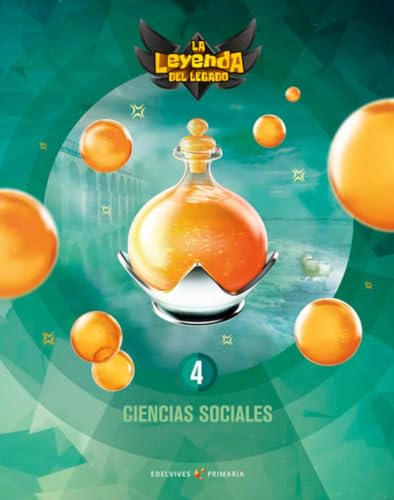
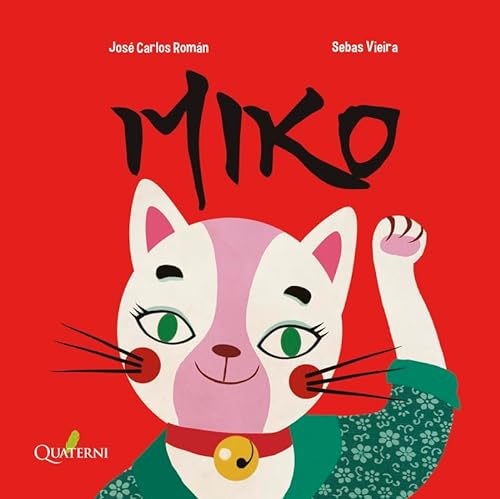

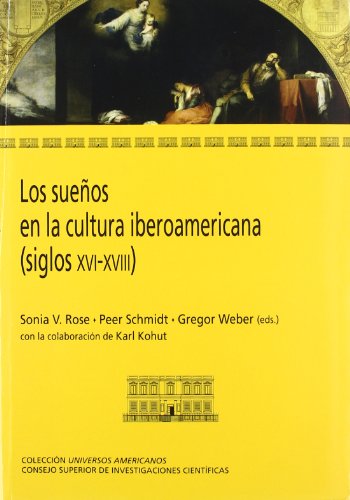
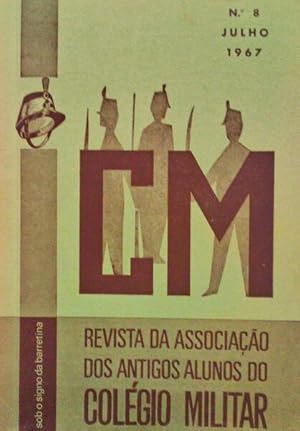
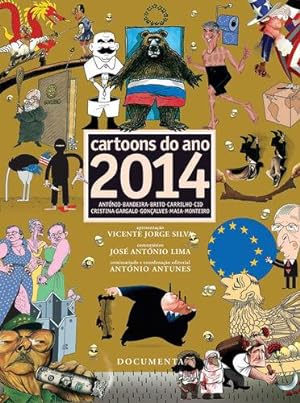
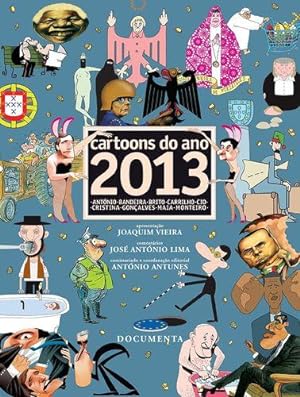
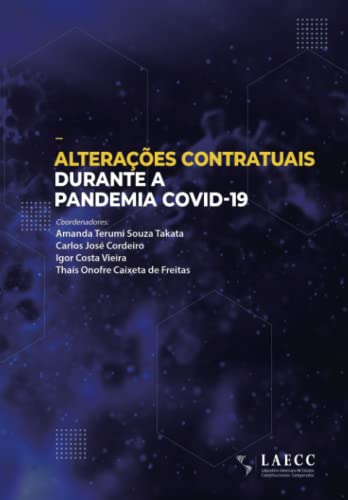
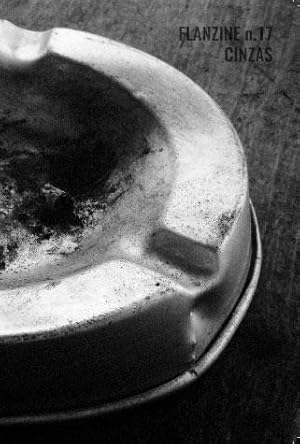
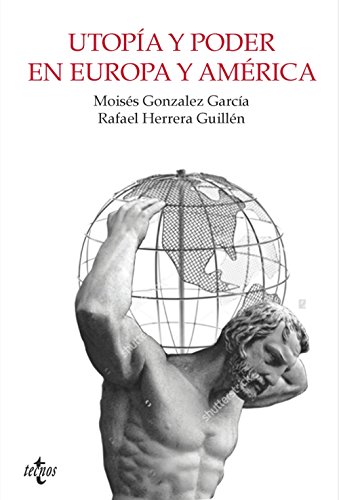
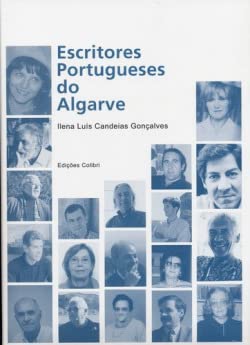
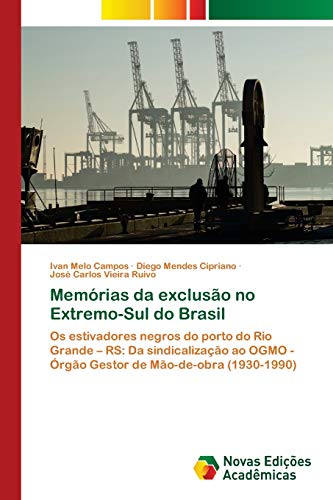
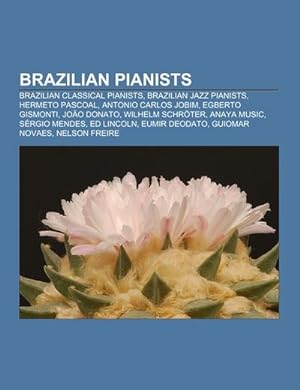
![Seller image for Coisas for sale by AdLib[[er]]](https://pictures.abebooks.com/inventory/md/md31468801658.jpg)
![Seller image for Vieira do Minho; noticia historica e descriptiva. (1923) [LeatherBound] for sale by S N Books World](https://pictures.abebooks.com/inventory/md/md30962444961.jpg)
